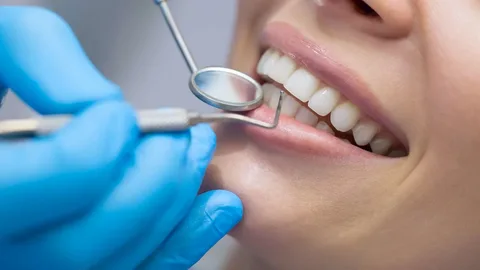Our general health and well-being depend on sleep, which is vital for many physiological functions, including the immune system. The inability to fall or stay asleep is known as insomnia, and it affects a large percentage of people globally. In addition to its direct impacts on mood, thinking abilities, and overall well-being, sleeplessness is becoming more closely associated with immune system disruptions. This article explains how sleep—or lack thereof—affects our body’s capacity to fend off disease and preserve optimal health by examining the complex relationship between immunological function and insomnia.
Comprehending Sleeplessness
Millions of individuals worldwide suffer from insomnia, a chronic illness that goes beyond a single restless night. The American Academy of Sleep Medicine defines insomnia as the inability to get asleep, stay asleep, wake up too early, or experience non-restorative sleep even when given enough chance to sleep. Based on the length of time it lasts and the underlying causes, insomnia can be classified as acute (short-term) or chronic (long-term).
Stressful life events, modifications to the sleeping environment, or routine interruptions are frequently the cause of acute insomnia. Once the triggering factors are addressed, it usually resolves on its own without the need for intervention. On the other hand, chronic insomnia lasts for three months or longer and occurs at least three evenings a week. It can have no known cause, or it can emerge as a result of lifestyle choices, underlying physical or mental health issues, or both.
The Basics of the Immune System
Our body uses the immune system as a defense against illnesses, infections, and other dangerous intruders. It is made up of an intricate web of tissues, cells, and organs that cooperate to recognize and destroy pathogens such as bacteria, viruses, and fungus. White blood cells (such as T and B cells), antibodies, cytokines (signaling molecules), and lymphoid organs (such as the spleen and lymph nodes) are important components of the immune system.
Having a healthy immune system is essential for preserving general health. In addition to reacting quickly to dangers, it also helps with tissue healing, preserving homeostasis, and even altering mental processes via interacting with the endocrine and neurological systems.
Immune Function and Insomnia: A Connection
Over the last few decades, research has brought more attention to the reciprocal relationship between sleep and immunity. Immune responses are largely regulated by sleep, and immunological activity can also affect sleep patterns. Immune system performance may suffer significantly when this delicate balance is upset, as sleeplessness may.
Effect of Sleep Deprivation on Immune Response
Diminished immunological Reaction:
It has been demonstrated that prolonged sleep loss, a defining feature of insomnia, reduces immunological reactions. This includes lower cytokine production, decreased antibody response to vaccinations, and compromised T cell and natural killer cell function (which targets malignant or infected cells). Individuals may become more prone to infections and heal from diseases more slowly as a result of these changes.
Inflammation:
Higher body levels of inflammatory markers are linked to insomnia. Although chronic low-grade inflammation, which is frequently observed in illnesses like sleeplessness, is associated to a number of health issues, including as diabetes, autoimmune disorders, and cardiovascular disease, inflammation is a normal immunological response to injury or infection.
Modified Circadian Rhythms:
Sleep and circadian rhythms are intimately related. Circadian rhythms control a number of physiological functions, including the immune system. Changes in these cycles, as those brought on by erratic sleep habits in cases of insomnia, might affect when and how well the immune system reacts.
Stress Response:
Increased stress is often associated with insomnia, and this can further impair immune function. Stress chemicals that remain elevated for long periods of time, such as cortisol, can weaken the immune system and make people more vulnerable to infections.
Immune Effects on Sleep
On the other hand, the immune system might affect the quantity and consistency of sleep. The body frequently prioritizes sleep during infections in order to preserve energy and speed up healing. Immune response-related cytokines, such as interleukin-1 (IL-1) and tumor necrosis factor alpha (TNF-alpha), influence the brain’s sleep regulation regions to induce slumber. On the other hand, regular sleep-wake cycles can be disturbed by long-term activation of these pathways, as observed in inflammatory diseases linked to insomnia.
Clinical Consequences and Health Hazards
Beyond making a person more prone to infections, sleep disorders have other detrimental effects on immune system function. People who experience chronic insomnia may be more susceptible to:
Infectious Diseases:
Enhanced vulnerability to bacterial and viral diseases, such as the flu and common cold.
Chronic Inflammatory Diseases:
Psoriasis, inflammatory bowel disease, and rheumatoid arthritis are among the conditions where chronic inflammation is a major factor.
Autoimmune Disorders:
When the body’s own tissues are unintentionally attacked by the immune system, autoimmune disorders can arise or worsen as a result of inadequate sleep.
In addition, low-quality sleep has been linked to worse results for cancer patients receiving therapy, possibly as a result of weakened immune systems and slower healing.
Handling Sleeplessness to Boost Immune Function
In order to preserve general health and wellbeing, it is imperative to manage sleep problems due to the significant influence that insomnia has on immunological function. The following are some methods to enhance immune system function and encourage better sleep:
Sleep hygiene includes establishing a regular sleep schedule, establishing a calming nighttime ritual, and optimizing the sleeping environment by reducing light and noise, among other things.
The first-line treatment for persistent insomnia is cognitive behavioral therapy for insomnia (CBT-I), an organized program that focuses on the attitudes and actions that lead to insomnia.
Stress management:
Methods including progressive muscle relaxation, deep breathing exercises, and mindfulness meditation can help lower stress levels and improve sleep.
Physical Activity:
Studies have demonstrated that regular exercise strengthens the immune system and improves the quality of sleep. But stay away from strenuous exercise right before bed since it could prevent you from falling asleep.
Nutrition:
Vital elements that promote immunological health can be obtained via a balanced diet high in fruits, vegetables, whole grains, and lean meats. Steer clear of coffee and large foods right before bed.
Seeking Professional Assistance:
It is advised to speak with a healthcare physician or sleep specialist if self-care efforts are ineffective in treating insomnia. They are able to pinpoint the root causes and suggest suitable courses of action, such taking medication or engaging in more behavioral therapy.
In summary
immunological response and insomnia are strongly related, with sleep being essential to sustaining a strong immunological response. Prolonged sleeplessness can weaken the immune system, making a person more vulnerable to infections and inflammation and possibly accelerating the onset of long-term medical disorders. Understanding how immune health is impacted by sleep emphasizes how critical it is to treat sleep disorders as soon as possible. Promoting sound sleeping practices and getting the right care when necessary can help people maintain their immune systems and general health.




